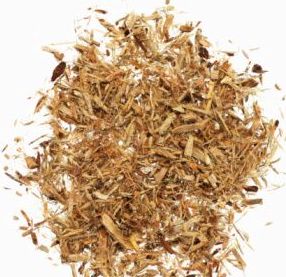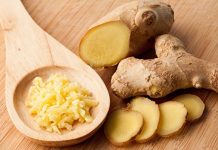Constipation is defined as slow, irregular or infrequent bowel movements. It is a common problem in our modern society which subsists mainly on a diet of denatured, refined, processed and deep-fat fried foods.
Your doctor may recommend conventional treatments such as fiber supplements and over-the-counter laxatives. However, many natural remedies for constipation are considered safe, and are just as effective.
Constipation Diet
Improving your diet is your first line of defense when it comes to digestive problems. Most gastrointestinal disorders are caused by poor dietary habits. Begin by avoiding processed foods such as chips, cookies, cakes, candy or other confectioneries.
 Refined flours tend to “gum” up in the digestive tract and are difficult to pass. Instead, consume mostly whole grains such as whole wheat bread, oatmeal and brown rice. Whole grains are not only rich in nutrients, but also high in fiber.
Refined flours tend to “gum” up in the digestive tract and are difficult to pass. Instead, consume mostly whole grains such as whole wheat bread, oatmeal and brown rice. Whole grains are not only rich in nutrients, but also high in fiber.
Fiber provides bulk in the intestine and generally helps move waste along in the system.
In addition to whole grains, fresh fruits and vegetables are also high in both soluble and insoluble fiber. The US Department of Agriculture recommends that adults consume at least 2 cups of fruit and 2½ to 3 cups of fresh vegetables each day.
Unfortunately, this is much less than the average American consumes.
One cup of fruit is roughly equal to the amount found in a medium sized apple, or a handful of grapes or berries.
Likewise, a serving of vegetables would amount to one cup of broccoli, a large handful of carrots and a small garden salad. Other high fiber foods that are good to include in the diet are legumes or dried beans, nuts and seeds.
Water in Constipation
Water is essential to all life functions. Our blood is 50 percent water. It helps transport nutrients throughout the body. It is necessary to maintain body temperature. It is also used in excretion and elimination.
If you do not drink enough water each day, you will become dehydrated, your organs will not be able to function properly, and, of course, you may develop poor digestion and elimination. Without enough water in the diet, over time, these problems can become chronic.
Experts recommend that adults consume at least 8 cups of water per day. However, if you are constipated, you may want to consume a little extra water to help rehydrate the body and flush out the digestive and excretory systems.
A good rule of thumb to remember is to take in about half your body weight in ounces of water each day. For example, a 160 pound man would need about 80 ounces of water. Make sure you know how much water you need.
Herbs for Constipation
Herbs are a time-honored approach to treating many health-related conditions. Some herbs are naturally cleansing and can help purge the digestive system.Cascara sagrada, which means “sacred bark”, is an herbal remedy used specifically for constipation.
 It gently stimulates the digestive system, and is even considered safe for long term use.
It gently stimulates the digestive system, and is even considered safe for long term use.
Slippery elm is another gentle herb that is soothing to the digestive tract. It is emollient, meaning it soothes mucous membranes. Herbalists use slippery elm to treat colitis and constipation in children.
Avoid cathartic herbs such as senna, buckthorn and rhubard. While they do provide immediate relief, they have harsh side effects such as gas, cramping and possibly excessive weight loss.
And, like over-the-counter laxatives, herbal cathartics may become habit forming, and over time can actually worsen the symptoms.
Another herb which is somewhat controversial, but is nonetheless effective in treating occasional constipation is aloe vera juice. It is generally considered safe if taken for short periods of time. Check with your healthcare provider before trying herbal remedies, especially if you are currently taking any prescription medication.
Considerations
If your constipation continues for more than a few weeks, or does not respond to natural treatments, you may have a more serious medical condition.
Check with your healthcare practitioner if symptoms persist. Stress can also contribute to sluggish digestion. Consider ways to manage your stress, such as yoga, meditation, deep breathing exercises or hypnosis. Remember to always check with your doctor before making any major changes to your diet or lifestyle.
Natural therapies such as yoga or herbal supplements are meant to complement, and not replace traditional medical care.
References
1. USDA – Food Groups )
2. Mayo Clinic – Water, How Much Should You Drink Every Day? https://www.mayoclinic.org/)
3. Clayton College of Natural Health – Herb Reference Guide )
4. Ray Sahelian, MD – Weight Loss Herbs (http://www.raysahelian.com)









